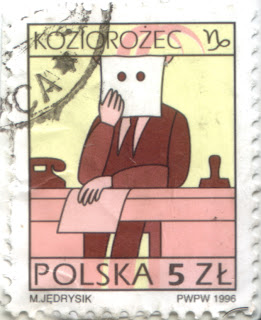some correspondences: Grandieux>>Lynch>>Bunuel>>the Spanish Civil War
 (reverse order)
(reverse order)Y/day, one of the local op shops yielded up a book on the Spanish Civil War. Interesting fact at p. 53:
"... after the collapse of the Bourbons in the Napoleonic Wars, the Church, gaining popularity from its championship of the opposition to Napoleon, became the centre of resistance to liberal ideas. Its most violent protagonists grouped themselves into the Society of the Exterminating Angel."
(Hugh Thomas, "The Spanish Civil War" 1961 Penguin p/b)
Which would merely serve to confirm something already well known (I guess): Bunuel's films are taking place in all kinds of amazing metatextual arenas. The quote above provides a wry joke on the 'protagonists' of another Spanish drama, his El Angel exterminador (1962) - suggesting a sinister motive for that seemingly innocent bourgeois dinner party. Bunuel's fantasy of revenge on Falangist conspirators? Maybe...
 Anyways, Bunuel was alike to David Lynch (and very few others) in that he often took responsibility for sound chores with his films. Lynch is more given to ominous timbral mass; Bunuel's soundtracks are punctuated by a sly form of sonic surrealism. I treated with some of this for the 'cognitive dissonance' series for The Night Air (ABC RN), & Aranda makes mention of it in his Bunuel bio-crit... But listen to some of the off-camera but diegetic sound effects in (especially) The Milky Way or The Discreet Charm of the Bourgeoisie & you'll hear what I mean.
Anyways, Bunuel was alike to David Lynch (and very few others) in that he often took responsibility for sound chores with his films. Lynch is more given to ominous timbral mass; Bunuel's soundtracks are punctuated by a sly form of sonic surrealism. I treated with some of this for the 'cognitive dissonance' series for The Night Air (ABC RN), & Aranda makes mention of it in his Bunuel bio-crit... But listen to some of the off-camera but diegetic sound effects in (especially) The Milky Way or The Discreet Charm of the Bourgeoisie & you'll hear what I mean.Whether consciously or not, Lynch's most recent (& remarkable) feature, Inland Empire, owes a considerable debt to a film by Philippe Grandieux of a couple years previous: La Vie nouvelle. This is true not just of both the audio-image technique, but also of its seedy reckoning with a sexuality that might encompass prostitution and violence, and a disjointed narrative structure that never completely explicates just WTF?!? is actually going on. Both films might be surveying a certain kind of mental landscape; the margins of LA, in the case of Lynch's film, and a darkly visioned underbelly of former Iron Curtain countries (the presence of the UNProFor peacekeepers suggests Sarajevo) in the Grandrieux... what the situationists used to call 'psychogeography'.

Lotsa links:
Exterminating Angel review on Slant
some Bunuel action from senses of cinema
Calanda's Bunuel Centre
Religion in the films of Bunuel
Inland Empire homepage
Adrian Martin on La Vie nouvelle, at KinoEye
An interview with Grandrieux, from Martin's Rouge
Another piece on La Vie nouvelle and more, here
Toronto Psychogeographical Society
Psychogeography and the derive, by Sadie Plant
Labels: David Lynch, film culture, Luis Bunuel, Philippe Grandrieux, soundtracks, spanish civil war, surrealism


0 Comments:
Post a Comment
<< Home